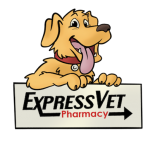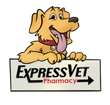Constipation. Probably not most people’s favorite topic to discuss, but something that most of us have experienced at one time or another in our lives. Well we are not the only ones who can suffer from this type of unfortunate discomfort.
Constipation is a condition that can affect most types of animals, our dogs included. With tighter rules these days governing where dogs can be, ensuring they are always on leashes, and stipulating where they are legally allowed to defecate, we have a much better idea about our dog’s bathroom habits. And that’s good news.
What Causes Constipation in Dogs?
Constipation is defined as difficult, infrequent, or absent bowel movements. It is one of the most common health problems associated with dogs’ digestive systems. There are several possible causes of constipation in dogs.
These can include:
· Too much or too little fiber in his diet
· Lack of exercise
· Blocked or abscessed anal sacs
· Enlarged prostate gland
· Excessive self-grooming can cause large amounts of hair to collect in the stool
· Matted hair around the anus from lack of grooming or from obesity
· Ingested gravel, stones, bones, dirt, plants or pieces of toys, etc. caught in the intestinal tract
· Masses or tumors on the anus or within the rectum, causing an obstruction
· Side effect of medication
· Trauma to the pelvis
· Orthopedic problem that causes pain when a dog positions himself to defecate
· Neurologic disorder
· Dehydration due to other illness
Signs that your dog is constipated include the obvious symptoms of a lack of defecation or, if they are defecating, they are likely producing hard, dry stools that can look and feel like pebbles when you clean up after them. Additional signs of constipation include straining, crouching, or whimpering while trying to defecate. Grass particles, string, or matted feces around the anal area may also be signs of constipation in your dog.
In chronic cases of constipation in dogs, animals may retain hard, dry fecal matter in their digestive tracts. This is known as obstipation, in which there is so much fecal matter that it becomes compacted and the dog cannot defecate at all.
What to Do If Your Dog Is Constipated
If you notice any of the signs that indicate your dog is constipated, there are some possible treatment options you can use. First, you can try increasing your dog’s fiber intake by adding pumpkin, wheat bran, or fiber supplements to their daily diet. You can also try to increase their exercise to attempt to move things along a little bit more. If your dog’s constipation persists, then try giving them a laxative, stool softener, or, if the condition persists further, see if an enema helps ease the situation.
In cases where their constipation does not clear up by trying any of those methods, you should consult your veterinarian. Although not the most polite subject, constipation in dogs or any other animal is no joke. It can be become a very serious condition that, if it develops into obstipation, can lead to other serious health conditions that can even potentially be fatal if not taken care of.
While constipation is a pretty natural condition that occurs from time to time, you can work to prevent it by helping your dog to be active, feeding them a healthy, fibrous diet, and ensuring they drink plenty of water. If your dog is a male, neuter him at a young age to prevent prostate enlargement. Maintaining healthy eating and exercise habits will help prevent constipation from forming and keep it from becoming worse to the point when it turns into a larger problem.
When to Take Your Dog to the Veterinarian
If you have concerns about your dog’s bowel movements, or lack thereof, or if you have any questions, you should take your dog in to see the vet. They can better determine how severe your dog’s constipation is and if there are any underlying health conditions causing it. They can also make helpful recommendations about which foods to give your dog to help relieve the constipation and if laxatives or enemas may be necessary.
The most important thing is to be aware of your dog’s bathroom habits so you can notice when there is something out of the ordinary. The last thing you want is constipation turning into obstipation. If your vet prescribes your dog any medication to treat their constipation problems, you can fulfill your prescription conveniently online at ExpressVet Pharmacy.






